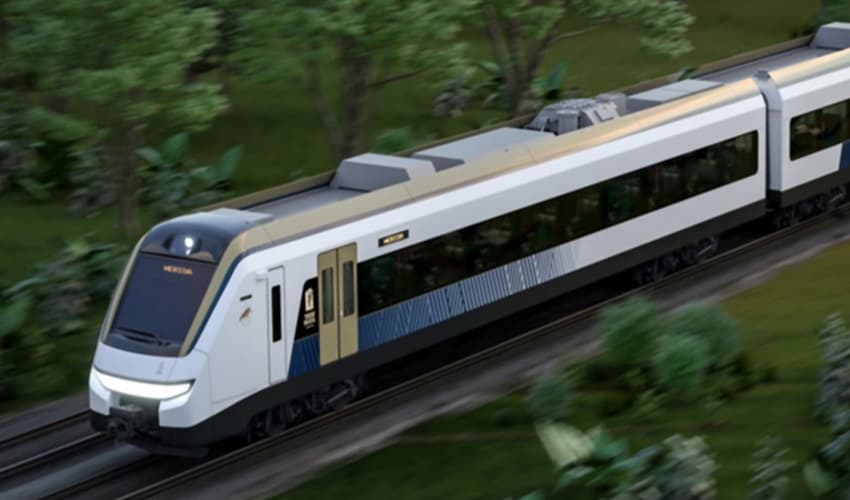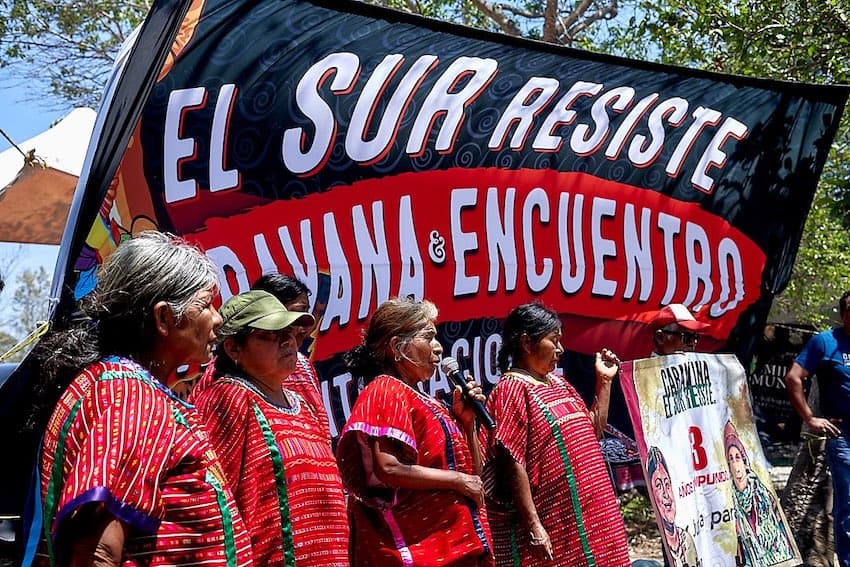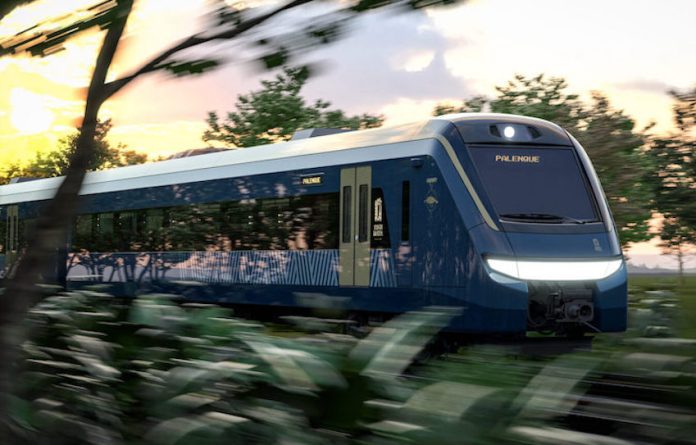The first railcars for the Maya Train project will arrive on July 8, the director of the National Fund for Tourism Development (Fonatur), Javier May, said on Monday.
The first cars will arrive in the Yucatán peninsula, where they will first enter a static testing phase before beginning dynamic and rolling tests in August. The tests will be carried out on a 90-km stretch of track.

Maite Ramos, the director of railway company Alstom México, explained during President López Obrador’s morning press conference that the transfer of the first railway cars is already being organized.
“What do the tests consist of? They will have to be both static and dynamic, where absolutely everything is tested — the water, the light, the door, the cabin,” Ramos explained.
“First will be the whole part, let’s say the electromechanics and operations of the train. Then, you have to run it on the track. We have to run 15,000 km to test absolutely everything.”
He added that the train will be equipped with a system called HealthHub, which will allow the unit’s performance to be monitored every 30 seconds. The information will be monitored by specialized personnel.

“It is as if it were an electrocardiogram, and it will always operate — not only during the initial tests. It is as if the train were our patients. The sensors tell us how the sun rises, if something hurts, if there’s something to pay attention to,” said Ramos.
The new “X’trapolis” units, manufactured in Ciudad Sahagún, Hidalgo by French trainyard Alstom – who provided the first units for the Mexico City Metro system – are popular worldwide, including in France, Spain and Australia, where they form part of major suburban commuter networks.
Guadalupe Phillips, director of the Mexican construction company Empresas ICA, showed a video during the press conference that demonstrated the construction progress on the Cancún and Chichén Itzá stations, along section 4 of the railroad.
May confirmed that the Maya Train will begin operations in December, as the head of the train company, Tren Maya S.A. de C.V., promised in February. It will pass through 34 stations and stop in five states – Tabasco, Chiapas, Campeche, Yucatán and Quintana Roo.
The train, a key presidential infrastructure project, has proved controversial due to its environmental impact and harm to Indigenous communities and land.
In April, the environmental watchdog established by the United States-Mexico-Canada Agreement (USMCA) recommended an investigation into the train’s environmental impact. Last year, a U.N. human rights working group warned that the railroad could threaten the rights of Indigenous communities in the region.
On Saturday, during the “El Sur Resiste” (The South Resists) conference, held in San Cristóbal de las Casas, Chiapas, the Zapatista National Liberation Army (EZLN) and the National Indigenous Congress (CNI) denounced the effects that they said the Maya Train project will have on the region’s Indigenous population.
The EZLN and the CNI have repeatedly stated that they oppose the López Obrador administration’s megaprojects in the country’s southeast, including the Maya Train and the Isthmus of Tehuantepec trade corridor project.
